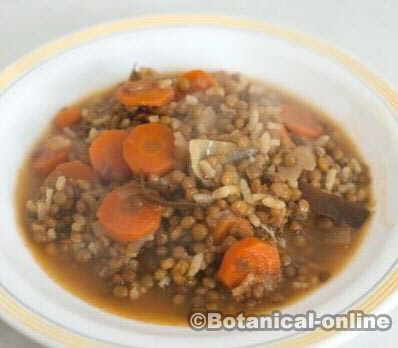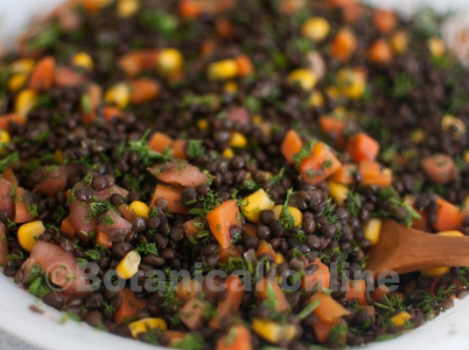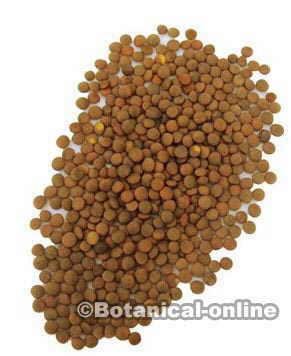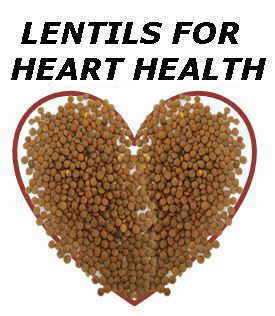Contents
- 1 Benefits of lentils
- 1.1 EDIBLE PROPERTIES OF LENTILS
- 1.2 Lentils are very rich in proteins
- 1.3 Amount of protein in lentils
- 1.4 Lentils for diabetes
- 1.5 Do lentils have a lot of carbohydrates?
- 1.6 Lentils for children, students and young people
- 1.7 Lentils for obesity. Do lentils get you fat?
- 1.8 Lentils increase desire
- 1.9 Lentils protect the heart
- 1.10 Lentils protect the nervous system and benefit the mood
- 1.11 Lentils to maintain the right level of iron
- 1.12 ARE LENTILS SAFE?
- 1.13 Lentils are rich in purines and uric acid
- 1.14 Myths about lentils
- 1.15 Can people with diabetes eat lentils?
- 1.16 Lentils nutritional composition
- 1.17 More information on lentils
Benefits of lentils
EDIBLE PROPERTIES OF LENTILS
Lentils are very rich in proteins
 Lentils with rice
Lentils with rice
Lentils are an ideal food for vegetarians who do not eat meat because they contain a lot of protein. In India, where there is a large community of people who practice vegetarianism, lentils are are a staple food along with peas and chickpeas.
Of all the lentils, Beluga lentils are particularly noted for their protein content. This is a type of small and round lentil with a shiny black color that reminds us the eggs of a Beluga. A Beluga, besides a type of whale, is a type of fish whose eggs produce the best quality and most expensive caviar in the world.
Another protein-rich lentil is the Dal Urad lentil coming from India. In this country, it is used to replace meat.
Other important nutrients provided by lentils are slow-absorbing carbohydrates and a large amount of fiber, which makes them very suitable as a satisfying food.
Among the vitamins that it provides, folic acid, that is necessary to improve circulation and heart health, stands out.
In addition, lentils contain other B-complex vitamins (except B12), which nourish the nervous system.
One of the greatest advantages of these foods is their great wealth in minerals, mainly potassium, phosphorus, magnesium and calcium, iron and zinc.
Amount of protein in lentils
Lentils contain approximately between 25% and 30% protein, so they occupy the second place in vegetarian foods rich in protein, after soy.

Photo of lentils. A dish can substitute animal protein in meals
Formerly it was thought that vegetable protein was of very low quality, but nowadays, a more detailed analysis of these foods has shown that lentils contain all amino acids in high proportions. Therefore, a bowl of lentils can substitute animal protein for a meal.
The advantage of lentils with respect to certain meats like pork meat is that lentils are richer in more digestible amino acids. The richness of proteins and nucleic acids is considered as a natural antidote against aging because they are able to renew the cells of our body.With what lentils can be combined?
To get even more complete vegetable protein and accompany this legume with more nutrients, they can be combined with rice or seeds (sesame, walnuts, etc.). These are rich in methionine, which is a slightly deficient amino acid in lentils. It is not necessary that this combination occurs in the same meal to get this methionine, but that these foods can be consumed throughout the day.
The richness of proteins and nucleic acids of lentils is considered as a natural antidote against aging by being able to renew the cells of our body.
It is considered that the health of hair, skin, nails, muscle strength, and vitality in general, both physical and mental, are enhanced by the abundant consumption of foods rich in plant proteins.
*More information: Proteins for vegetarians
Lentils for diabetes
Lentils, like many legumes, are characterized by their high content of protein, fiber and folic acid. They have the advantage of pouring glucose gradually into the bloodstream during your digestion. This is obtained by metabolizing carbohydrates.
When we eat vegetables, glucose is incorporated into the blood little by little. This control of blood sugar is very interesting for two essential reasons:
- Maintain the feeling of fullness for quite some time: Unlike other foods that produce a sharp rise in the level of sugar, meaning that they force the body to burn a lot of sugar in a short time (or turn it into fat), the legumes keep sugar levels very stable which determines that the organism can be satiated for a long time.

Photo of lentils
They are ideal in feeding children so they can have enough energy in their games, in the food of people who perform some physical exercise or simply in all people who want to stay satisfied, without feeling hungry shortly after having Eaten.
- Keep sugar levels normal without needing a lot of insulin: This is very interesting for people who have diabetes and need to control blood sugar levels. The consumption of this food can make them less dependent on the insulin supply.
Do lentils have a lot of carbohydrates?
It is said that it would not be convenient for diabetics to abuse them given that their carbohydrate content is very high (55%). However, we must bear in mind that this figure of hydrates corresponds to raw lentils and that 100 gr. of cooked lentils only contain 20% (apples or pears contain 15% and bananas 23%).
In any case, if a diabetic person still have mistrust towards this food, they could be mixed with other vegetables, such as spinach or artichokes, which would decrease their hydrate content.
* More information: Lentils for diabetics
Lentils for children, students and young people
On the other hand, it should not be forgotten that the carbohydrates, proteins, vitamins and minerals that lentils provide are necessary for feeding the brain and nerves.
For all this, this vegetable is very interesting not only for people who must make great physical efforts, by means of providing abundant energy, but also for all those young people of growing age, students and people with a lot of stress or who must surrender intellectually to be able to feed the brain properly.
Lentils for obesity. Do lentils get you fat?
It is said that obese people should not eat many lentils. Indeed the caloric power of cooked lentils is quite high (116 calories / 100 g) although not superior to other foods such as rice (130/100 g) or chicken (291/100 g).
Lentils have very little fat and the caloric power comes from its richness in proteins and carbohydrates that, as we have seen before, provide great satiety and can keep our hunger satisfied for a long time.
In addition, this food is very rich in potassium that helps to eliminate water from the body, neutralizing the retention of liquids that could provide other foods richer in sodium. This mineral is also essential to maintain a healthy heart and for the health of the kidneys.
Therefore, we do not believe that lentils should be a restrictive food for obese people or those who wish to diet to lose weight. On the contrary, this food will feed them in great quantity and quality and will help them control their hunger without being forced to “peck” other foods that are more caloric and have less food properties.
Lentils increase desire
Lentils are very rich in zinc. This mineral is very important for the hormonal control that influences the desire.
Lentils protect the heart
Lentils are very rich in B vitamins, which, as we know, are the vitamins that are suitable for the proper functioning of the nervous system.

Lentils for heart health
Among all, they note because they have very high amounts of folate, which the body transforms into folic acid (Vitamin B9) whose deficiencies are responsible for the onset of symptoms of depression or bad mood, heart problems and poor circulation.
Lentils protect the nervous system and benefit the mood
Other prominent vitamins that contain lentils are niacin or vitamin B3 that, together with thiamine, pyridoxine and riboflavin, contribute to keep the nervous system in good condition.
These vitamins, together with their choline content, make them very suitable for the nervous system and for all those who wish a more nutritious diet.
Lentils to maintain the right level of iron
Are lentils very rich in iron?
The lentils, like the rest of the legumes, are rich in iron. However, despite their fame, they are not the richest in this mineral, since they contain less iron than beans, chickpeas or soybeans.
We already know the importance of iron in the prevention of diseases such as anemia. This food is very interesting also for women who have a tendency to suffer in menstruation, for people who usually suffer nosebleeds. Lately it has been proven that women who have low levels of this mineral have a tendency to suffer more vaginal infections.
ARE LENTILS SAFE?
Lentils are rich in purines and uric acid
Lentils are rich in purines, some components that in the organism are transformed into uric acid, therefore they should be eaten with caution by those people who are dieting for gout and diet for osteoarthritis or arthritis.
* More information: Contraindications of lentils
Myths about lentils
Lentils, like other legumes, are very healthy foods, both for human consumption and for the health of the planet. Despite this, unfortunately, its consumption among the population is much lower than desired. It would be advisable for people to consume more legumes and less meat.
Unfortunately, there are many rumors about eating lentils, like in the rest of legumes, that are far from their consumption: you can eat lentils and other legumes every day, they are very nutritious and the intestinal flora adapts to them (They do not produce many gases?
Can people with diabetes eat lentils?
People with diabetes can also eat lentils and other legumes (any type), for which they are especially beneficial. These foods are very healthy and should eliminate any doubt that may reduce their consumption
Lentils nutritional composition
Composición de las lentejas por cada 100 gr. | |
Crudas | |
| Water | 8,26 gr. |
| Calories | 352 Kcal |
| Fat | 1,06 gr. |
| Protein | 24,63 gr. |
| Carbohydrates | 63.35 gr. |
| Fiber | 10.7 gr. |
| Potassium | 677 mg |
| Phosphorus | 281 mg |
| Iron | 6.51 mg |
| Sodium | 6 mg |
| Magnesium | 47 mg |
| Manganese | 1.393 mg |
| Selenium | 0.1 µg |
| Zinc | 3.27 mg |
| Copper | 0.754 mg |
| Calcium | 35 mg |
| Vitamin C | 4.5 mg |
| Vitamin E (alpha-tocopherol) | 0.49 mg |
| Vitamin A | 39 UI |
| Vitamina B1 (Thiamin) | 0.873 mg. |
| Vitamina B2 (Riboflavin) | 0.211 mg |
| Folate | 479 µg |
| Niacin | 2.605 mg |
Table with the main components of the lentils according to the USDA








